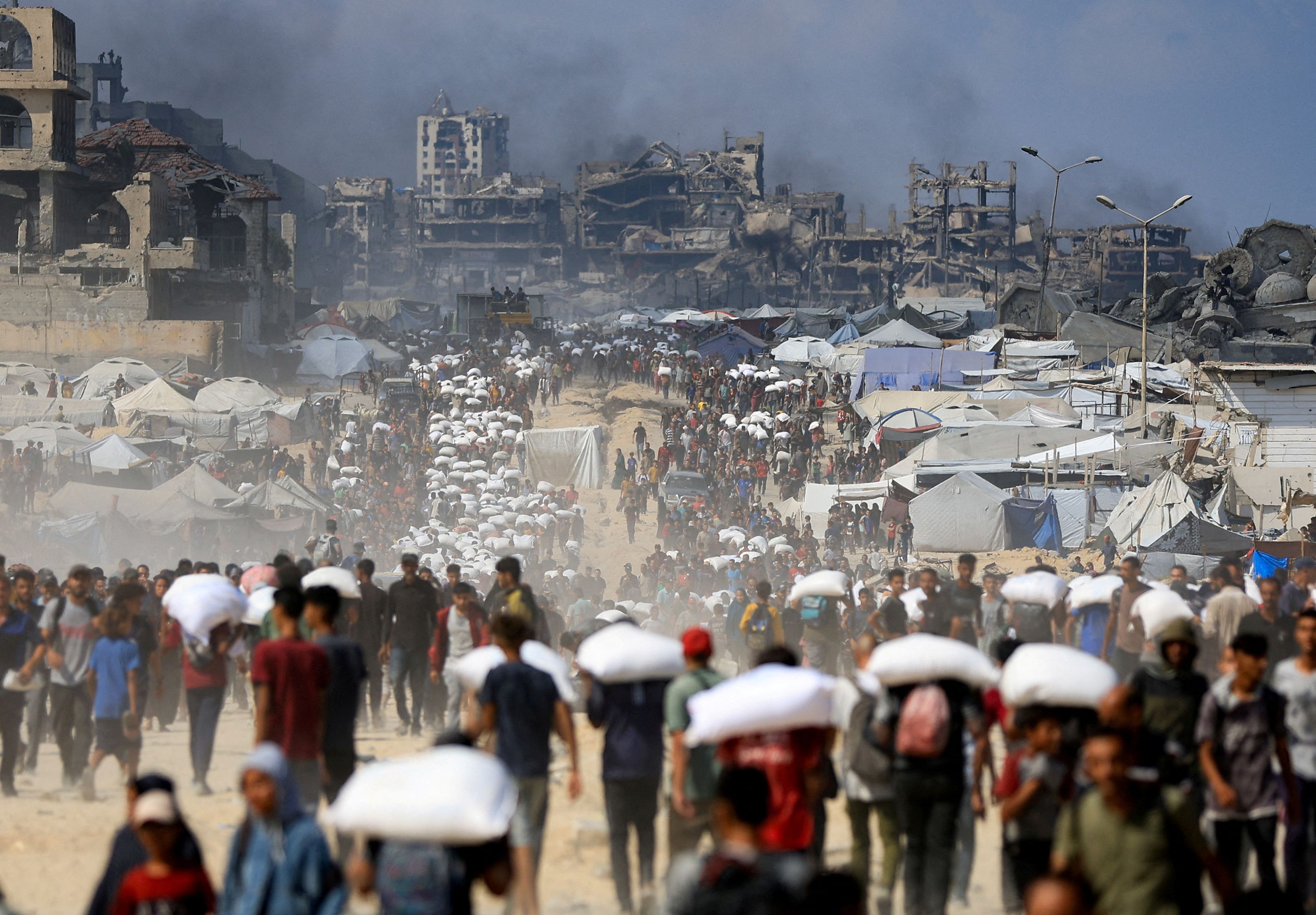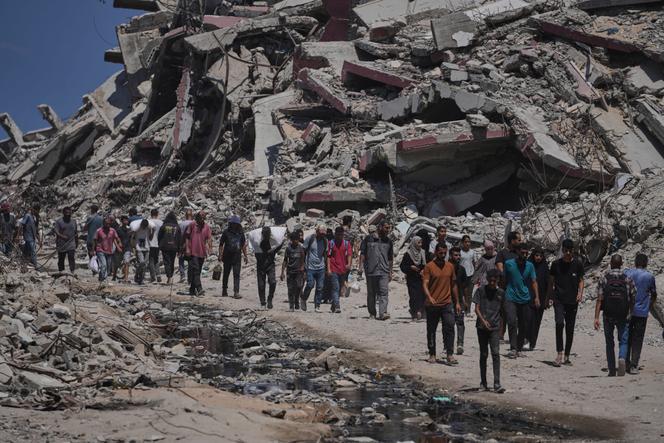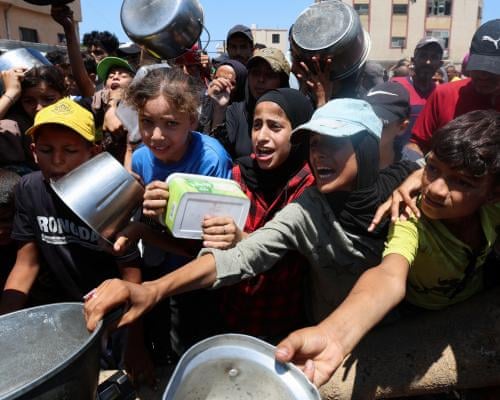Israeli Forces Kill Dozens Awaiting Aid in Northern Gaza

At least 67 Palestinians were killed and over 150 injured on July 20, 2025, when Israeli forces opened fire on a crowd waiting for UN food aid in al Sudaniya, northern Gaza. The incident occurred as aid was being delivered through the Zikim crossing with Israel, according to the Hamas-run Health Ministry.
The Hamas-run Health Ministry initially reported 73 deaths across Gaza on the same day, with the majority of fatalities occurring near the northern aid distribution site.
The Israeli military (IDF) stated that its soldiers fired "warning shots to remove an immediate threat posed to the troops" in northern Gaza. They disputed the reported death toll, claiming it was significantly lower than initially reported and attributed the chaos to Hamas militants.
Conflicting Accounts of the Incident Emerge

Accounts of the incident vary significantly. The UN World Food Programme (WFP) reported that its convoy of 25 trucks carrying food encountered "massive crowds of hungry civilians" who then came under gunfire shortly after entering Gaza. WFP condemned the violence against aid-seekers as "completely unacceptable."
On July 19, 2025, a similar incident occurred, where at least 32 Palestinians were reportedly shot dead by Israeli troops while seeking food from distribution hubs run by the US- and Israeli-backed Gaza Humanitarian Foundation (GHF) in southern Gaza. Witnesses alleged indiscriminate fire.
International Condemnation and Calls for Ceasefire

The events have sparked widespread international condemnation. Pope Leo XIV called for an immediate ceasefire and condemned an Israeli strike on Gaza's only Catholic church earlier in the week, which resulted in three deaths and ten injuries, including the parish priest.
On July 16, 2025, the UN Security Council (UNSC) condemned Israel's "inhumane approach" to the Gaza crisis and the repeated killings of malnourished Palestinians seeking aid. They called for immediate action from Israel, including lifting restrictions on aid, an end to forced displacement, and an immediate ceasefire. This meeting followed an incident where at least 20 Palestinians were killed in a stampede at a GHF food distribution site.
Dire Humanitarian Situation in Gaza Worsens

The recent incidents highlight the catastrophic humanitarian crisis in Gaza, where widespread hunger and a severe lack of essential supplies are prevalent. The situation has been exacerbated by restrictions on aid entry imposed by Israel in March 2025, which were partially eased in May.
The UN reported on July 15, 2025, that malnutrition rates among children under five in Gaza had doubled since Israel significantly restricted food entry in March. UNRWA screened nearly 16,000 children in June, finding 10.2% acutely malnourished, up from 5.5% in March.
Furthermore, UN agencies warned on July 14, 2025, that critical fuel shortages in Gaza could force a complete halt to their operations, including food and healthcare services.
Key Players and Their Positions

Several stakeholders are involved in this complex situation. The Hamas-run Health Ministry is the primary source for casualty figures in Gaza. The Israeli Military (IDF) is accused of opening fire on crowds seeking aid, while the IDF claims to fire warning shots to remove threats and blames Hamas for creating chaos.
Palestinian civilians are the primary victims of the conflict and the aid-related incidents, facing immense suffering, displacement, and starvation. The United Nations (UN) and its various agencies are deeply involved in providing aid and monitoring the humanitarian situation, consistently voicing concerns about the safety of aid seekers and the overall crisis.
The international community has expressed condemnation and is calling for investigations and an end to the violence. The UN Security Council, Pope Leo XIV, and human rights organizations are among those speaking out.
Discrepancies in Reported Figures and Accusations

Significant discrepancies exist between the death tolls reported by the Hamas-run Health Ministry and the Israeli military's initial findings, leading to controversy and accusations.
Each side blames the other for the incidents. Hamas and witnesses accuse Israeli forces of direct fire on unarmed civilians, while Israel blames Hamas for operating in populated areas and creating dangerous conditions around aid distribution.
Doctors Without Borders (MSF) branded the GHF relief effort a "slaughter masquerading as humanitarian aid," stating that "If people arrive early and approach the checkpoints, they get shot."
Consequences and Impact on Aid Operations

The repeated killings of aid seekers have drawn strong condemnation from the UN and other international bodies, who are increasingly vocal about the need for investigations and accountability.
These incidents further exacerbate the already dire humanitarian situation, making it even more dangerous and difficult for aid to reach starving civilians. The fear of seeking aid due to potential violence contributes to accelerated starvation.
The dangerous environment poses significant challenges for humanitarian organizations, with some forced to scale back operations due to security concerns.
The ongoing violence, including the aid-related killings, intensifies international calls for an immediate and lasting ceasefire.